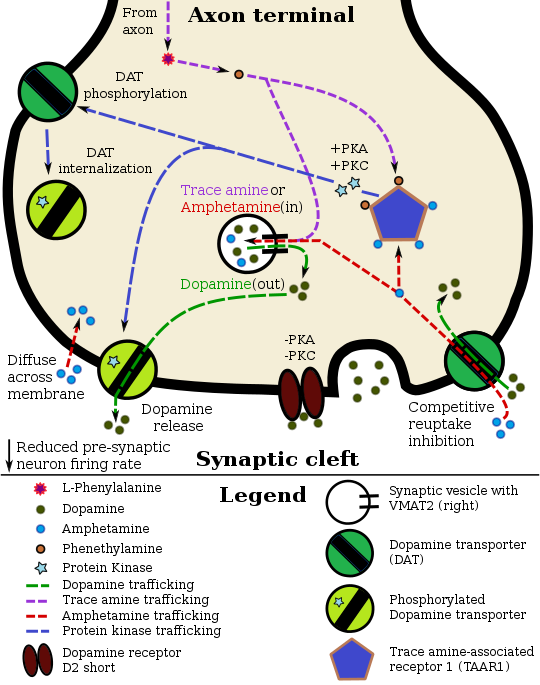Amphetamine enters the presynaptic neuron across the neuronal membrane or through
DAT. Once inside, it binds to
TAAR1 or enters synaptic vesicles through
VMAT2. When amphetamine enters the synaptic vesicles through VMAT2, dopamine is released into the cytosol (yellow-orange area). When amphetamine binds to TAAR1, it reduces postsynaptic neuron firing rate via
potassium channels and triggers
protein kinase A (PKA) and
protein kinase C (PKC) signaling, resulting in DAT phosphorylation.
PKA-phosphorylation causes DAT to withdraw into the presynaptic neuron (
internalize) and cease transport.
PKC-phosphorylated DAT may either operate in reverse or, like
PKA-phosphorylated DAT, internalize and cease transport. Amphetamine is also known to increase intracellular calcium, an effect which is associated with DAT phosphorylation through a
CAMKIIα-dependent pathway, in turn producing dopamine efflux.
